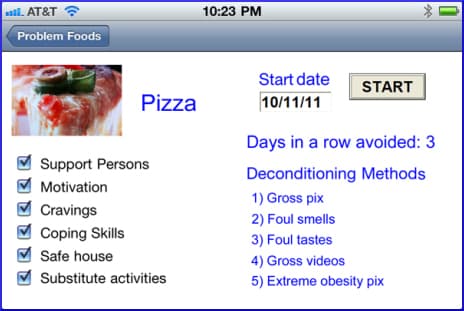
Last time, we talked about a group discussion arranged by the authors of Freakonomics, Steven D. Levitt and Stephen J. Dubner. It was conducted with the goal of rejecting no suggestion, however weird, because the unimpeded flow of ideas turns out to be a wonderful way to gather suggestions for change.
Participant Geoffrey Canada, whose feelings are strong, calls the childhood obesity epidemic a “horror show.” He is unhappy with the way certain communities suffer from a shortage of healthful food and a superfluity of junk food. Many others feel the same way, but as Childhood Obesity News has mentioned, the law of supply and demand seems to have taken charge in this area. No matter how much public dismay is expressed over “food deserts,” consumers will still stubbornly reject broccoli in favor of chocolate-covered bacon, and little can be done about it at this stage.
Harvard economist David Laibson, influenced by B.F. Skinner-style behavioralism, reminds us that delayed reinforcement, whether positive or negative, is very ineffective in changing behavior. The reward for doing the right thing has to be immediate, and so does the penalty for making the wrong choice. If the feedback isn’t totally apparent and obvious in the moment, the subject’s brain doesn’t make the connection.
This is why children are unfazed by warnings about how badly their thighs will chafe in five years if they don’t stop eating potato chips now. Laibson says:
Organisms are very good at learning when the stimulus and response are tightly linked in time. And they’re terrible at learning when stimulus and response are separated by, like, 10 minutes, let alone five years. So if we could somehow help people realize what you just ate is doing it now, I think people would feel much more negativity towards overeating.
Unintended Consequences
Bill Dietz, who used to work for the Centers for Disease Control, brought up a matter that people don’t like to think about, because it seems to underline the futility of trying to change the human condition. He thinks that about 20%, or one-fifth, of the existing obesity has been caused by the reduction in tobacco use among Americans. People quit smoking, but since their proclivity for addiction is the root cause, many of them move on to an overwhelming dependence on food.
Steven Levitt brought up the question of self-control, otherwise known as willpower, and how scarce it can be among the obese. He mentions bariatric surgery as an “aggressive and invasive solution.” Then, he mentions the researchers who have asked subjects to carry around a small container of something that smells awful, and says:
So I recently discovered that you can buy in a bottle, a little spray bottle or squeeze bottle the most revolting smelling things in the world, of which all you need to do is take one or two whiffs of them and you think you don’t need to eat for a long time after that.
As it happens, foul smells are part of the program laid out by the “W8Loss2Go” smartphone application developed by Dr. Pretlow. The aversive effect extinguishes the urge to eat, in the moment. When the person has a craving for some problem food, the negative reinforcement is immediate and unmistakeable.
David Laibson came up with an idea unrelated to operant conditioning: to have people consume parasites that are specially altered to steal the nutrients from the food they eat, so they don’t get fat. The custom-designed parasites would be sterile, so the user could control the number of hitchhikers on his or her digestive system at any given time.
Steven Levitt added to that thought:
There’s all sorts of tapeworms that actually are not perfect, but are pretty good already at doing what David wants them to do. And I’m sure if we could domesticate them with the kind of effort that we put into dogs and cows and things, we could make tapeworms some of the most loyal and serviceable pets that would ever be out there.
For a website called Babble, Lissie Heiselt commented about these anti-obesity suggestions:
I don’t think we’ve reached the point of desperation that would lead many people to voluntarily consume a parasite, nor do I think we should go there. Instead, let’s use these crazy ideas to motivate ourselves toward better behavior and healthier choices: next time you’re tempted to let your kid sit in front of the tv with a bag of potato chips, imagine a bracelet around his wrist, beeping and getting redder and redder… [T]hen toss him his running shoes and go for a jog around the block.
Your responses and feedback are welcome!
Source: “100 Ways to Fight Obesity: Full Transcript,” Freakonomics,com, 03/27/2013
Source: “Ideas for Fighting Childhood Obesity: So Crazy They Just Might Work?,” Babble.com, 05/02/13

 FAQs and Media Requests:
FAQs and Media Requests: 











